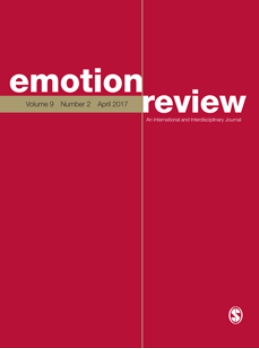Using Bandura's Self-Efficacy Theory to Explain Individual Differences in the Appraisal of Problem-Focused Coping Potential
IF 3.4
2区 心理学
Q1 PSYCHOLOGY, MULTIDISCIPLINARY
引用次数: 1
Abstract
Appraisal theory assumes that the individual variability of emotional reactions to the same situation is due to individual differences in appraisal. However, the question of how interindividual differences in appraisal come about has been rarely formally addressed. We focus on one of the central dimensions of appraisal—problem-focused coping potential—and attempt to explain individual differences in appraisals along this dimension using self-efficacy theory. We integrate outcome expectancies, self-efficacy expectations, and problem-focused coping potential into a single framework and outline their personality antecedents. Using generalized self-efficacy beliefs as an example, we then discuss the mechanisms underlying the effects of personality dispositions on appraisal and the conditions that moderate their influence. We conclude with the implications for theory, research, and practice.用班杜拉自我效能理论解释问题聚焦应对潜能评价的个体差异
评价理论认为,同一情境下情绪反应的个体差异是由于评价的个体差异造成的。然而,评估中的个体间差异是如何产生的这个问题很少得到正式解决。我们关注评价的一个中心维度——以问题为中心的应对潜力,并试图用自我效能理论来解释这个维度上评价的个体差异。我们将结果预期、自我效能预期和以问题为中心的应对潜力整合到一个框架中,并概述了他们的人格前因。以广义自我效能信念为例,探讨人格倾向对评价的影响机制以及调节其影响的条件。最后,我们总结了对理论、研究和实践的启示。
本文章由计算机程序翻译,如有差异,请以英文原文为准。
求助全文
约1分钟内获得全文
求助全文
来源期刊

Emotion Review
PSYCHOLOGY, MULTIDISCIPLINARY-
CiteScore
6.60
自引率
3.70%
发文量
34
期刊介绍:
Emotion Review is a fully peer reviewed scholarly journal. It adheres to a blinded peer review process in which the reviewer"s name is routinely withheld from the author unless the reviewer requests a preference for their identity to be revealed. All manuscripts are reviewed initially by the Editors and only those papers that meet the scientific and editorial standards of the journal, and fit within the aims and scope of the journal, will be sent for outside review. Emotion Review will focus on ideas about emotion, with "emotion" broadly defined. The Review will publish articles presenting new theories, offering conceptual analyses, reviewing the literature, and debating and critiquing conceptual issues.
 求助内容:
求助内容: 应助结果提醒方式:
应助结果提醒方式:


